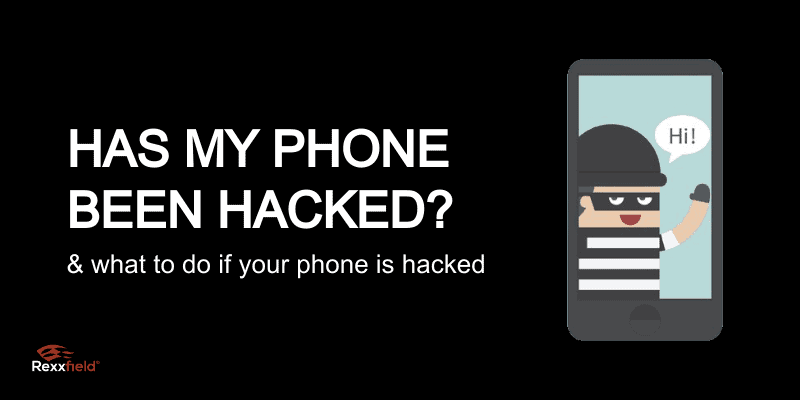Has my phone been hacked?
Modern life takes place on our phones more and more. Financial transactions like shopping and banking, even complex corporate finance deals, everything is stored on our phones. Our phones store an abundance of sensitive information, at risk of being stolen or exposed by hackers. Our cyber investigators hear the question, “has my phone been hacked?” all the time. In reality, very few phones are hacked, and most of those hacked phones are corporate devices rather than personal phones.
However, we have many clients whose phones are hacked by someone who holds a grudge, is malicious, or is obsessed. If this is the case, and you need to find out who it is, contact our cyber investigators. We specialize in identifying anonymous online users and hackers.
Contact our cyber investigators
- Has my phone been hacked? Signs of hacking
- How is my phone hacked?
- What to do if my phone has been hacked?
How do you know if your phone is hacked?

Strange or inappropriate pop-ups: Bright, flashing ads or X-rated content popping up on your phone could mean that your phone is infected with adware. Adware is a form of malware that forces devices to check out certain pages to gain revenue through clicks. If the pop-up isn’t the result of adware, it likely contains a phishing link to get the user to insert sensitive info or download malware.
Texts or calls not made by you: If you notice text or outgoing calls from your phone that you didn’t make, be wary. Malware might be forcing your phone to contact premium-rate numbers that malware is gain revenue. To find out if this is the case, check your phone bill for any costs you don’t recognize.
Higher than normal data usage: If your phone behaviour stays the same, yet your data usage has skyrocketed, it’s time to investigate. There could be malware or spy software running in the background, sending your information back to its server.
Apps you don’t recognize on your phone: If you have a new phone, remember that new phones often come with pre-installed apps. But if you have a new phone and notice new apps popping up, there may be malware on your phone.
Battery draining quickly: A phone hacked by malware may get a significantly decreased lifespan. This is because the malware – or installed spy software – uses the phone resources to scan the device and transmit it back to a criminal server. A phone’s battery life decreases over time. But if you use your phone the same way, but the battery drains significantly faster, a hacker may be to blame.
Unusual activity on accounts linked to the phone: If your phone is hacked, the hacker also has access to accounts linked to your phone, such as social media and email, as well as other apps on your phone. You may notice unusual activity on your accounts, such as resetting a password, sending emails, or signing up for new accounts.
How to hack a smartphone
Phones hacked via access to a device
You probably don’t expect this, but most phones are hacked through physical access to a phone. The most frequent way of hacking is through the access of an unattended phone. Even if you have a secure unlock pattern or pin, those can be observed or guessed.
Phones hacked through cloud services
Even if you don’t leave your phone unattended, it is still relatively easy to be hacked through cloud services. Nearly everyone stores their phone data in the cloud, which offers hackers another point of access. We can’t emphasize this enough but, never use the same password more than once! Strong and unique passwords make it more difficult for hackers to gain access through your cloud services. But they can still gain access through knowing your email address and the answers to your security questions.
Email addresses are guessed easily through combining someone’s first and last name with major providers such as Gmail. Most victims are hacked by someone close to them who will know the answers to the security questions. And if your security question is your mother’s maiden name, there’s a good chance your random hacker can find out the answer through Facebook.
Phones hacked through Public WiFi
Unsecured public WiFi hotspots are also an easy way to access someone’s data. Any hacker with the right (free, downloadable) tools can see what websites network users access and get login information, passwords, and cookies from unsecured connections.
Phones hacked through installed software
Phones are mini computers and sensitive to many of the same threats as full-sized computers. Like said before, most people use their phones daily for shopping and banking, causing a massive increase in malicious software to exploit people’s personal information.
Malicious software can hack a phone in numerous ways. The most common way is to trick someone into downloading the virus by disguising it as a beneficial application, for example. Some of these applications transmit your data directly, while other software exposes vulnerabilities in the operating system for further attacks. Other types of software monitor your location, and keystrokes, and steal passwords to banking, etc. This software can be installed on phones with both physical and remote access.
Phones are hacked through advanced spy surveillance.
Most of our clients are hacked by hackers with a grudge against them. The vast majority of our clients are hacked through access to their phones or cloud services. Their hackers use a more commercialized attack. More sophisticated hackers use more advanced equipment to hack your cellphone without coming near it. For example, law enforcement uses cell-site simulators or IMSI (International Mobile Security Identity) catchers that disguise themselves as legitimate cell phone towers to trick nearby phones into connecting to them. This way, they get access without touching the device or alerting the unsuspecting user.
IMSI catchers track a device’s location, intercept calls and messages, make fake calls and send texts, and perform attacks such as a denial of service, delivering malware, and flashing (rewriting) firmware.
But even though these IMSI catchers are used for good by law enforcement, hackers with enough money can buy them on the black market. They use these for more sophisticated types of attacks.
Silent SMS to track geolocation
A ‘ silent SMS’ is an empty message. The receiving phone acknowledges it has been received but discards the contents. The receiver gets no notification or indication that this has happened. But through the Silent SMS, the sender knows when the phone is switched on or off and can triangulate its location. Governments use silent SMS to track suspects, but the apps for sending a silent SMS are publicly available.
What to do if my phone has been hacked?
Firstly, follow up with any financial or online shopping services that saved your credit card. Check if there are any fraudulent transactions to report and dispute these charges with your bank.
When you believe that you are the victim of phone hacking and have clear hacking evidence, report it to the police.
If you don’t have evidence, you can hire a professional Cyber Forensic specialist to determine if you have been hacked and help you gather the evidence that can be utilized in both a criminal or civil action.
If you believe your phone is hacked by someone close to you, and you need proof, contact us. We specialize in identifying anonymous users through all devices and channels.


